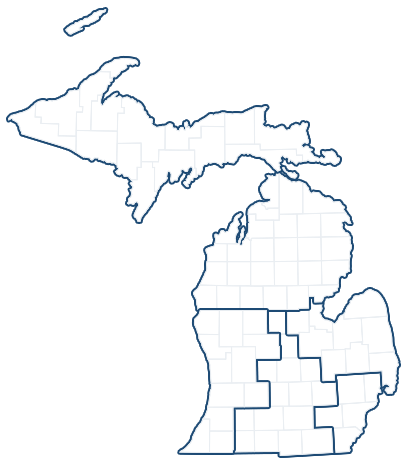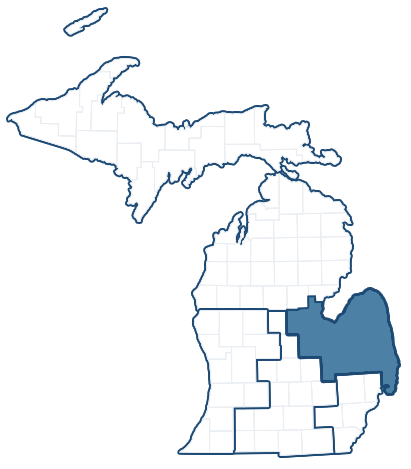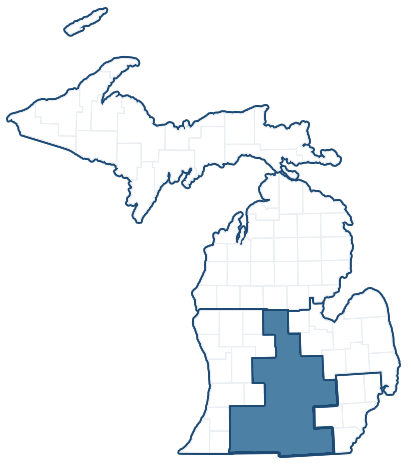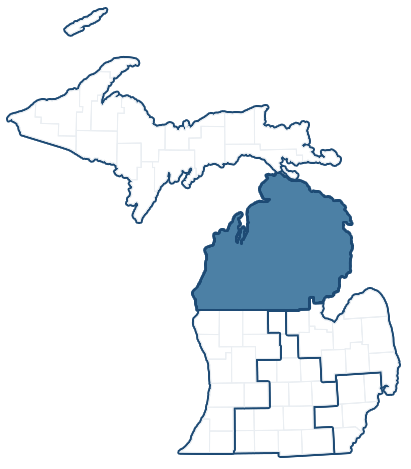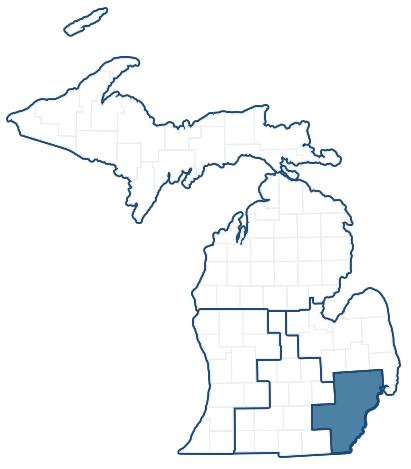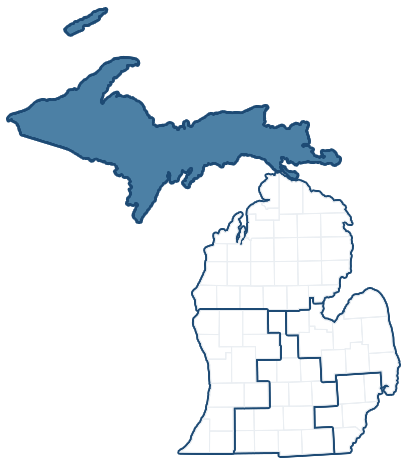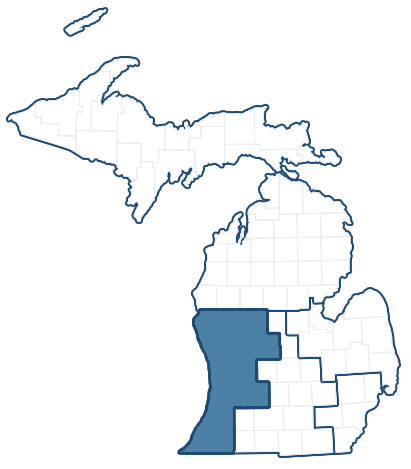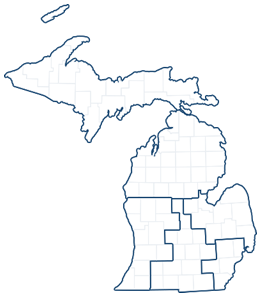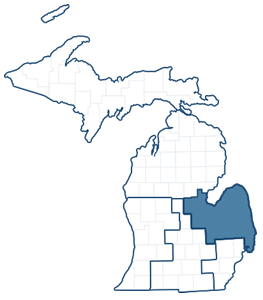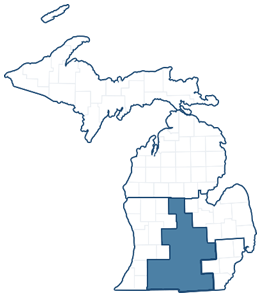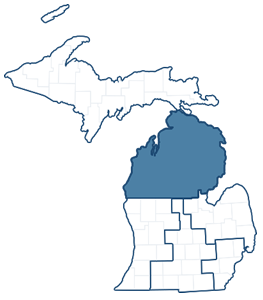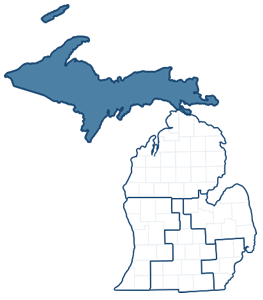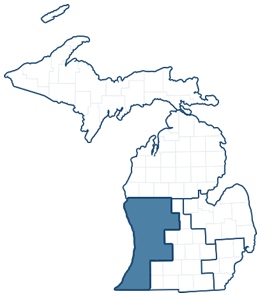Senate Passes Stabenow’s Bipartisan 2018 Farm Bill
Thursday, June 28, 2018Today, the U.S. Senate passed U.S. Senator Debbie Stabenow’s bipartisan 2018 Farm Bill by a wide bipartisan margin, 86-11.
The bipartisan bill strongly supports Michigan’s farmers and agricultural economy, which is the state’s second-largest industry. The bill also has a major impact in protecting Michigan’s Great Lakes, investing in our small towns and rural communities, promoting Michigan forestry, supporting local food economies and providing healthy food for families.
“This Farm Bill is a major bipartisan victory that has Michigan on every page,” said Senator Stabenow. “By reaching across party lines and working together, we are able to provide certainty to Michigan’s farmers, families, and rural communities.”
Stabenow, who serves as Ranking Member of the U.S. Senate Committee on Agriculture, Nutrition, & Forestry, co-authored the bill with Committee Chairman Pat Roberts (R-Kan.), titled the Agriculture Improvement Act of 2018. Serving as Chairwoman in 2014, Stabenow authored the current Farm Bill, which is set to expire in September 2018.
A summary of the Agriculture Improvement Act of 2018 follows:
The Bipartisan 2018 Farm Bill
The bipartisan Agriculture Improvement Act of 2018, also known as the 2018 Senate Farm Bill, will support the one in four jobs related to food and agriculture in Michigan. It will provide five years of certainty for Michigan’s farmers, fuel opportunity in rural communities and grow small businesses. It continues historic investments in land, water and wildlife conservation, will grow Michigan local food economies, and will support families working hard to make ends meet.
The Farm Bill expires on September 30th, which is why our farmers, families, and rural communities need a comprehensive five-year Farm Bill now.
The Farm Bill is a Jobs Bill
The bipartisan 2018 Senate Farm Bill fuels economic opportunity and job growth both on and off the farm in small towns and cities alike. It creates certainty – not just for farmers and farm workers, but also for equipment manufacturers, food processing businesses, retailers, and many other employers across Michigan.
- One in four jobs in Michigan are supported by agriculture, which is the state’s second-largest industry. The food and agriculture sector contributes $101.2 billion to Michigan’s economy annually.
- Support for bio-based manufacturing creates rural and urban manufacturing jobs by using Michigan-grown crops like corn and soybeans to make biofuels and Michigan-made goods like seat cushions and steering wheels.
- Clean energy and efficiency upgrades help small businesses and farmers invest in wind and solar technologies that lower utility bills and support energy installation jobs in Michigan.
- Rural economic development initiatives attract new employers to Michigan’s small towns and rural communities through Main Street infrastructure improvements and expanded access to high-speed internet.
- Forest management and innovation supports 30,000 Michigan forestry jobs, including loggers and mill workers in northern Michigan and the UP, all while finding new uses for Michigan-grown wood in manufacturing and building construction.
- Support for farmers markets and food hubs help family farmers and local businesses sell locally grown food and made-in-Michigan products to families, schools, and restaurants, driving the local food economy.
The Farm Bill Supports Michigan Farmers
From bad weather to volatile markets, farming is one of the riskiest businesses out there – which is why farmers need a strong safety net. The bipartisan 2018 Senate Farm Bill equips Michigan farmers with risk management tools that help them stay afloat during unexpected disasters, while also allowing them to tap into new markets to boost their bottom line.
- Strong risk management tools make it easier for farmers to protect their farms, including expanded crop insurance and risk management options for Michigan farmers who grow crops like apples, cherries, and hops.
- Improvements for dairy farmers spearheaded by Senator Stabenow include a new, affordable, and flexible safety net called Dairy Risk Coverage, and a new milk donation initiative to encourage dairy farmers to donate milk to Michigan food banks. The bill will also refund premiums for dairy farmers who purchased coverage under the former Margin Protection Program, which did not live up to expectations.
- Support for specialty crop growers, which Senator Stabenow first authored in a new title in the 2008 Farm Bill to strengthen Michigan’s diverse fruit and vegetable industry, increases productivity and drives demand for the food they grow.
- New help for beginning farmers, veterans, and urban agriculture creates opportunities to expand Michigan’s diverse agricultural economy and builds the bench to support the future of Michigan agriculture.
- Strengthened support for organic agriculture protects the integrity of Michigan organic products and helps farmers transition into a fast-growing and profitable sector of agriculture.
- Investments in agricultural research support the ground-breaking science and technology research being done at Michigan State University, fueling innovation and safeguarding Michigan’s agricultural economy.
- Strengthened export opportunities will continue to help countless Michigan farmers and small businesses find new global markets for their goods.
The Farm Bill Protects the Great Lakes and Supports Outdoor Recreation
The bipartisan 2018 Senate Farm Bill continues to be one of the most significant investments in the conservation of land, water, and our Michigan way of life. Through targeted conservation efforts, the Farm Bill protects our Great Lakes and rivers, while preserving wildlife habitat to support hunting, fishing, and other outdoor recreation.
- Successful regional conservation partnerships are strengthened to provide greater flexibility for farmers and partners leading regional projects that protect the Great Lakes and improve wildlife habitat for hunting and fishing.
- Support for farmer-led conservation helps farms reduce nutrient runoff into the rivers and streams that feed into Lake Erie and Saginaw Bay while maintaining productive farms.
- New hunting and fishing opportunities are created by adding new acres to the Conservation Reserve Program and expanding public access on private land in Michigan for outdoor recreation.
- Recreation and wildlife habitat in Michigan’s National Forests are strengthened through U.S. Forest Service partnerships with landowners, industry, and the state.
The Farm Bill Strengthens Michigan’s Small Towns and Rural Communities
Michigan’s small towns and rural communities need real resources to thrive in the 21st Century. The bipartisan 2018 Senate Farm Bill has made critical investments to spur economic development and improve the quality of life for families.
- Investments to strengthen rural water infrastructure helps Michigan families and businesses access clean drinking water and targeted support addresses harmful contaminants like PFAS.
- Resources to fight the opioid epidemic will expand telemedicine and treatment facilities in rural Michigan communities.
- Expanded high-speed internet will help to connect nearly 1 million people in rural Michigan who lack access.
- Support for rural businesses, which has already invested $322 million in nearly 1,000 Michigan businesses, fuels manufacturing, rural entrepreneurship, and the revitalization of main streets.
- Community facility investments will continue to build hospitals, improve schools, and strengthen fire and police stations in small towns across Michigan.
Strengthening Integrity and Food Access for Families
Just as the farm bill provides a safety net for Michigan farmers, it also includes a safety net for Michigan families. While the 2014 Farm bill has resulted in savings of $80 billion dollars from the Supplemental Nutrition Assistance Program (SNAP), the bipartisan 2018 Senate Farm Bill makes key improvements to further strengthen the integrity of the program, while still preserving critical food access for families.
- Stronger oversight of SNAP to ensure every SNAP dollar is getting to families in need.
- New job training opportunities will help SNAP participants find and keep good-paying jobs.
- Permanent investments for “Double Up” bucks will help SNAP families purchase Michigan-grown fruits and vegetables.
- Reduced paperwork for seniors makes accessing food assistance easier for grandparents on fixed incomes.
- “Farm to Food Bank” initiative will provide healthy, Michigan-grown foods to families, while reducing food waste.
Next Article Previous Article



